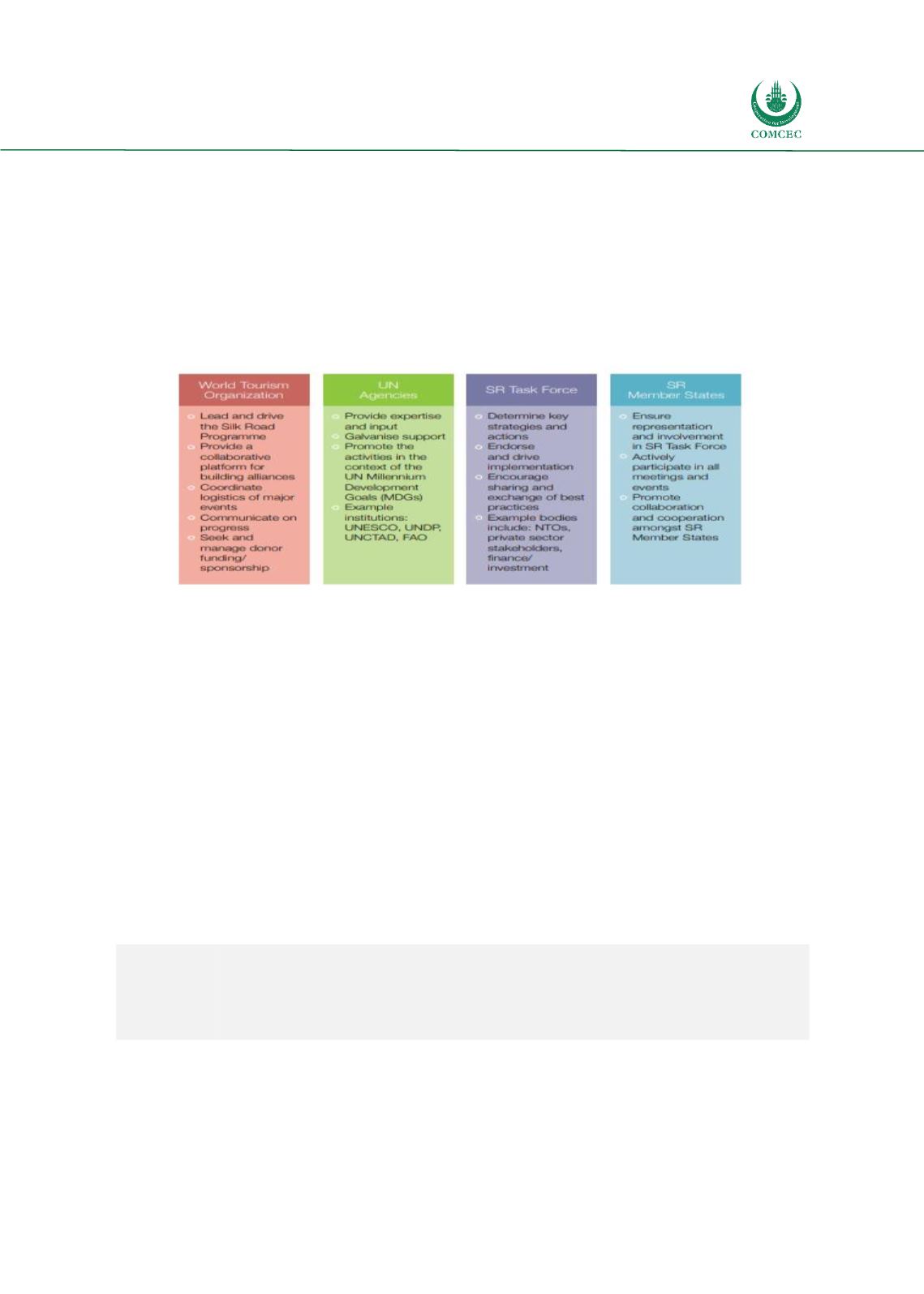

Sustainable Destination Management
Strategies in the OIC Member Countries
155
The Silk Road shows a less hierarchical structure in comparison with the GMS TC. As the
following figure illustrates, UNWTO leads the efforts in providing a platform for coordination
and alliance building as well as fundraising for the corridor with other UN agencies, such as
UNESCO and UNDP, delivering support for the various Silk Road initiatives. The Silk Road Task
Force, which includes representatives from the National Tourism Organizations and the
tourism businesses of the Silk Road countries, formulates strategies and prescribes actions,
while Silk Road member bodies collaborate on Silk Road activities as well as implement local
action plans and strategies.
Figure 44: Silk Road Governance Structure
Source: UNWTO (2014)
Enabling Legislation
Best practices from global MDTCs show efforts towards travel facilitation, whether through the
provision of unified visas, as in the case of the Schengen visa, or by facilitating entry
requirements and entry procedures, as in the case of the Global Entry and Nexus Programs.
While there are initiatives for cooperation in travel facilitation in the case of some of the
existing OIC MDTCs, there is still a long way to go in easing restrictions within existing travel
corridors. There have been many talks regarding unified visas for a number of tourism
corridors. However, only the three countries of the East Africa Northern Corridor currently
have this.
Table 24: Enabling Legislation - Best Practices versus OIC Examples
Best
Practices
-
Europe’s Schengen visa facilitating travel between member countries of
European TCs and revised Schengen visa regulations facilitating
procedures for
a
short-stay tourist visa.
-
Facilitation of entry procedures using Trusted Traveler Programs, such
as the United States’ Global Entry and Nexus Programs.
OIC
-
With the notable exception of the three East Africa Northern Corridor
countries, no OIC TC has a unified visa.
-
88% of the global population needs a visa to travel to Silk Road
countries. Kazakhstan and Uzbekistan are working on developing a
unified Silk Road visa for Central Asian countries.
Monitoring Performance
Best practices from global corridors show efforts towards a comprehensive performance
evaluation with European cultural routes using the European Tourism Indicators System,
















